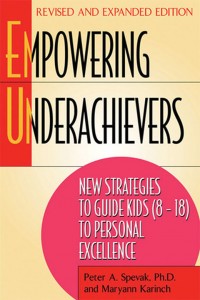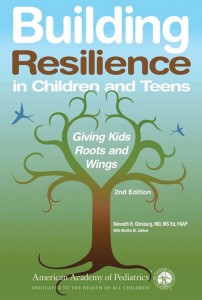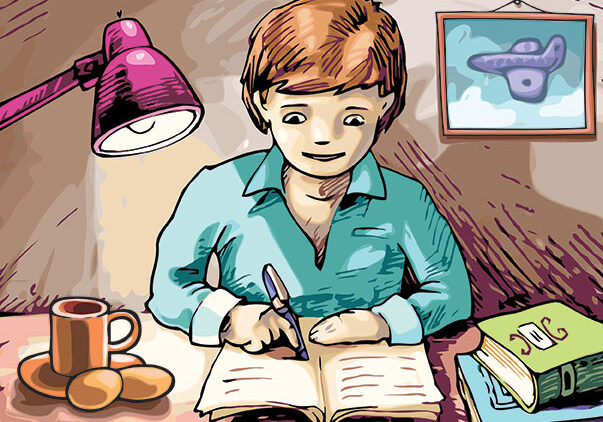 As parents, we want our children to feel excited about learning and to be willing to confront challenging material. We want them to have an endless supply of resilience to persevere and succeed at school and in their relationships, and to achieve at their highest level throughout their education and into adulthood … yet many bright students are underachieving.
As parents, we want our children to feel excited about learning and to be willing to confront challenging material. We want them to have an endless supply of resilience to persevere and succeed at school and in their relationships, and to achieve at their highest level throughout their education and into adulthood … yet many bright students are underachieving.
Dr. Peter Spevak, author of Empowering Underachievers, says attitude, not ability is the issue. “Underachievers “intellectually understand what they need to do, but their attitude is ‘so what?’” They work below their potential and they waste opportunities. Underachieving kids tend to blame, whether it’s “lousy teachers,” “crowded classrooms” or “irrelevant homework.” Two reasons for this, say Spevak, are emotional detachment and the shirking of personal responsibility.
Motivated students exhibit positive attitudes, work close to their potential, seek new opportunities, and “act age-appropriately responsible without being prodded.” Spevak identifies three abilities motivated students possess: 1) They persist through completion; 2) They work within time limits; and 3) They function independently.
Educator Janine Walker Caffrey has thoroughly examined the topic of personal drive. Since a lack of personal drive is often at work for underachievers, she shares ideas for helping youth understand the relationship between drive and achieving unique independent lives in her book Drive: 9 Ways to Motivate Your Kids to Achieve. Here are some “drive” qualities Caffrey identifies:
Ability to finish things. Drive provides you follow-through to get things done. A driven person focuses on the goal and is always working to move closer toward it.
Determination to maintain healthy life-long relationships. A balanced person who has drive will want to make all the parts of his life work well together.
Finding fulfillment in work. A driven person finds joy in work because he has a sense of purpose.
Ability to deal with uncertainty and change. Driven people understand the normal ups and downs of life. They are able to work through difficulties and crises because they understand that things will get better. Work, persistence and orientation toward goals make this possible.
How can we nurture these qualities to help kids aim higher?
Improve Parenting Habits
Dr. Sylvia Rimm has articulated these laws of achievement in her book Why Bright Kids Get Poor Grades And What You Can Do About It: A Six-Step Program for Parents and Teachers.
- Children need effective models and are more likely to be achievers if both parents join together to deliver the same clear and positive message about school effort and expectations.
- What you say about a child within his or her hearing dramatically affects that child’s behavior and self-perceptions.
- Children feel more tension when they are worrying about their work than when they are actually doing the work.
Build Resilience
For children prone to underachieve, resilience is often in short supply. In his book Building Resilience in Children and Teens: Giving Kids Roots and Wings, author Kenneth R. Ginsburg, MD, MSEd, FAAP says resilience means rising above difficult circumstances “while moving forward with optimism and confidence even in the midst of adversity.”
Resilience allows us to see challenges as opportunities and believe we will ultimately be strengthened from them. It is not engaging in self-doubt, catastrophic thinking, or a mindset of victimization. Ginsburg’s 7 crucial C’s of resilience include:
- Competence: a set of skills allowing them to test their judgments, make responsible choices, and face difficult situations.
- Confidence: gained by demonstrating their competence in real situations.
- Connection: with people who believe or love them unconditionally, producing strong values and feelings of safety.
- Character: a fundamental sense of right and wrong to ensure they are prepared to make wise choices, contribute to the world, and become stable adults.
- Contribution: the importance of personal contribution and a sense of purpose.
- Coping: learning to cope effectively with stress better prepares them to overcome life’s challenges.
- Control: a realization they can control the outcomes of their decisions and actions.
See the Connection to Well-Being
Positive psychology pioneer Martin Seligman paints a picture of the pursuit of well-being and healthy achievement in his book Flourish: A Visionary New Understanding of Happiness and Well-being: “People who live the achieving life often are absorbed in what they do, often pursue pleasure avidly, and they feel positive emotion (however evanescent) when they win. They may win in the service of something larger: “God made me fast, and when I run I feel his pleasure,” says actor Ian Charleson in his portrayal of Olympic athlete and missionary Eric Liddle in the film Chariots of Fire.”
Spevak says the key to helping underachievers change is for parents, educators and concerned others to “be a spark that ignites the flame” by empowering a child’s internal motivation so that he or she ultimately takes charge.
[sws_blue_box box_size=”590″]Editorial Note: North State Parent feels that while this article has useful and interesting information it leaves out any reference to the social and political environment that the child lives in, not to mention the curricula, learning styles and learning environments, each of which are factors that play a part in both motivating a child and in fostering a child’s ability to learn. NSP does not agree with the idea of labeling a child as an “underachiever,” especially without considering these aspects. How do you feel? Please let us hear from you on this important topic, either on our facebook page or by email at editorial@northstateparent.com[/sws_blue_box]
Comment Policy: All viewpoints are welcome, but comments should remain relevant. Personal attacks, profanity, and aggressive behavior are not allowed. No spam, advertising, or promoting of products/services. Please, only use your real name and limit the amount of links submitted in your comment.
You Might Also Like...

9 Great Apps To Help High-Schoolers Bound for College
Even though this year looks very different for students planning to attend college next year, some things never change. Typically, colleges and universities want to receive applications this month for […]
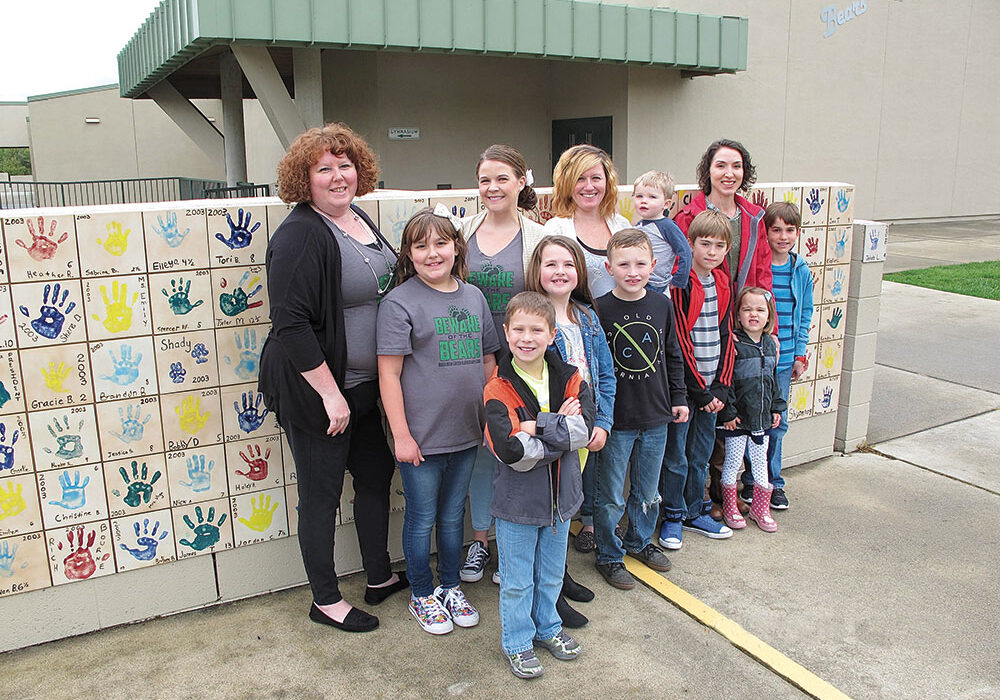
Parent Clubs: The importance of Parent Involvement in Schools
When people think of public school parent clubs, they often picture a group of parents getting together to plan how to fundraise for school supplies, trips and other expenses. However, […]

Exchange Students In The North State Share Their Favorite Holiday Food Traditions
Special foods are a sign of the holidays all over the world, and for seven students who are spending this Christmas in the North State far from their home countries, […]
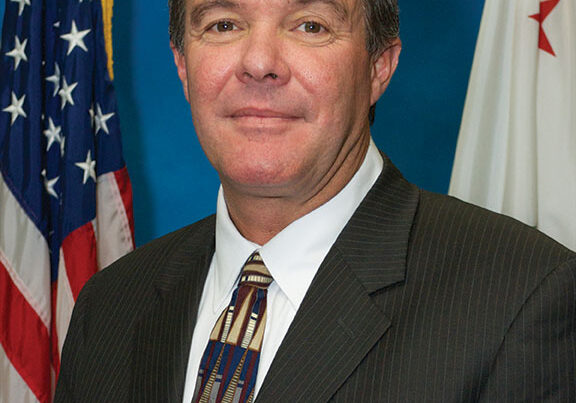
Meet Your School Superintendent: Interviews with Siskiyou and Butte Counties’ Superintendents of Schools
Note: In our November issue we featured interviews with Shasta County Superintendent of Schools Tom Armelino and Tehama County Superintendent of Schools Larry Champion. To read those informative interviews, visit […]




